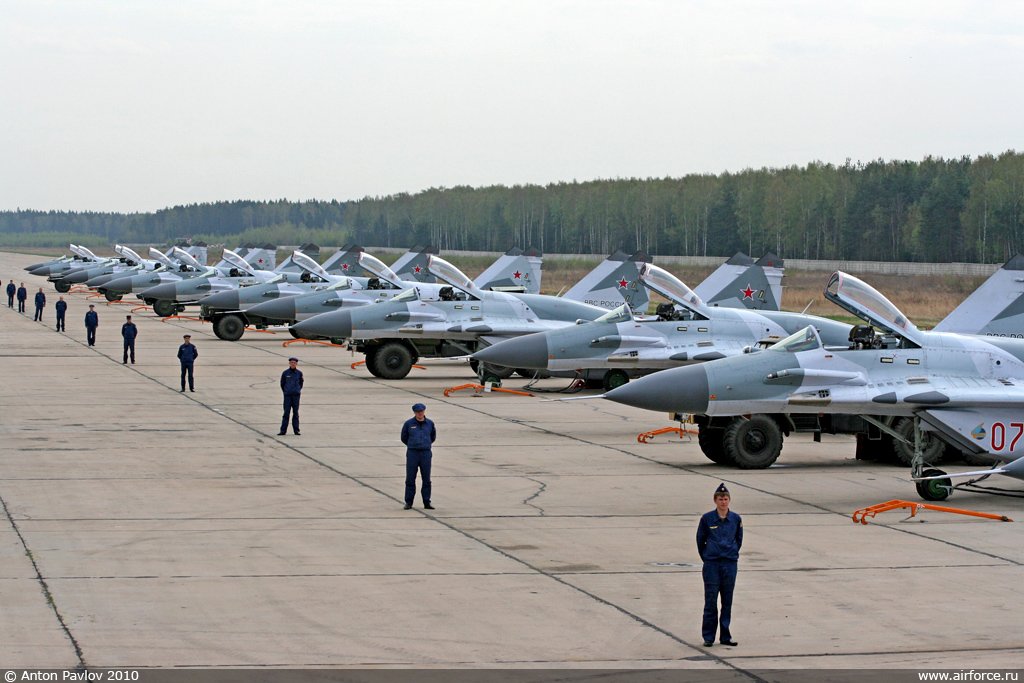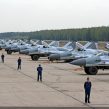
Russia’s Defense Ministry: Adrift in a Sea of Corruption
Publication: Eurasia Daily Monitor Volume: 8 Issue: 114
By:

A wave of high-profile corruption scandals, combined with the reported hemorrhaging of funds from the defense budget has underscored both the scale and demoralizing impact of the culture of kickbacks and “misappropriation” that so bedevils Russia’s defense ministry. Already, the level of loss to the defense budget adds another terrible blow to the state armaments program to 2020 and its unrealistic modernization targets.
Senior commanders were implicated in an extortion scandal at Lipetsk airbase, after two senior lieutenants’ revealed details of the scam on the Internet. On a monthly basis, a portion of bonus payments to officers was siphoned off for the commander and his deputy. Senior Lieutenant Igor Sulim’s complaint was verified by military prosecutors. In January 2010, the commander of the unit wrote to officers explaining how much they had to pay from their bonuses, seemingly on an incremental scale: the better the pilot, the more he had provide to the commander. Sulim complained to the defense ministry and was asked to resign, though he continues to serve at the airbase. Prosecutors found that since early 2010 the two commanders in question had extorted 2 million rubles ($71,000) from their men (Channel One TV, https://www.mk.ru/politics/article/2011/05/22/591103-kupyuryi-vyisshego-pilotazha.html, May 23). It seems that trying to raise standards, opens an outlet for corruption to multiply.
Predictably, the Kremlin has appeared eager to act against senior officers, to demonstrate that something is being done to curb military corruption. On June 2, Major-General Alexander Belevitin, the Chief of the Main Military Medical Directorate, and his colleague Colonel Alexei Nikitin were arrested on suspicion of corruption. Law enforcement sources told Interfax that “Belevitin has been charged with accepting a major bribe as a kickback for the procurement of medical equipment” (Interfax, June 2).
Apparently no arm or branch of service is free from the effects of corruption. Military prosecutors recently uncovered the misappropriation of 157 million rubles ($5.6 million) during the construction of the Russian Strategic Rocket Forces (Raketnye Voyska Strategicheskogo Naznacheniya–RVSN) facility in Chukotka. The Prosecutor-General’s Office found that construction companies had “falsified reports addressing the progress of the project, mentioning untrue volumes” (Interfax, May 19).
An Audit Chamber report obtained by The Moscow Times on May 31, indicated that between November 2010 and March 2011 government officials “misspent” more than 2 billion rubles ($71 million). Overpricing contracts by 252 million rubles ($8.99 million), “ineffective expenses” resulting in the loss of 992 million rubles ($35.4 million), featured among its main findings. The report criticized a 2005 Federal law on state tenders, which in effect reduced competition involved in the tendering process from 3.68 bids per tender in 2006 to 2.78 today. Gazeta.ru reported that “Another defense agency, the Federal Agency for Delivery of Weapons, Military and Special Equipment, or Rosoboronpostavka, was accused of misspending by increasing the average salary of its workers to 135,000 rubles ($4,800) per month last year, an amount 2.2 times higher than at other state agencies.” Sergei Fridinsky, the Chief Military Prosecutor told Rossiyskaya Gazeta that corrupt military officials are “stealing” around 20 percent of the defense budget through kickbacks and bogus contracts (The Moscow Times, June 1).
An anonymous group of experts close to government centers of expertise and leading Russian experts in the field of corruption including a member of the Council for Development of Civil Society under the president, the Chairman of the National Anti-Corruption Committee Kirill Kabanov, Stanislav Belkovsky and former Deputy Energy Minister Vladimir Milov have concluded that the defense ministry and its subordinate Spetsstroy is the most corrupt among all government ministries. The defense ministry is considered to have attained this notoriety based on its ability to blame the loss of funds on “uncontrolled spending.” Military procurement, and especially research and development (R&D) are viewed as the most lucrative areas where amounts of up to 90 percent of state funds can be pocketed. Due to the inordinately high level of secrecy, that in real terms transcends the Law On State Secrets, lack of transparency, minimal accountability and a complete absence of reliable state statistics the ministry is literally a beehive of corrupt activity. Indeed, some experts believe that although the level of misappropriation in relatively open areas of the defense budget may be 20 percent (the figure stated by Fridinsky) in other more opaque areas it could be substantially higher, as much as 60 percent
(https://www.flb.ru/info/48944.html, June 8).
Additional sources of corruption relate to the opacity of defense ministry land and property holdings; and its management of 352 federal state unitary enterprises. In 2008, despite the global financial crisis, the defense ministry still managed to receive 39.3 billion rubles ($1.4 billion) in revenue and declared a substantially smaller figure. In 2008 Spetsstroy managed 126 federal state unitary enterprises, producing a revenue of 62.4 billion rubles ($2.23 billion) and listing in the federal budget revenue only 0.0117 billion rubles (https://www.flb.ru/info/48944.html, June 8).
The defense ministry is not only affected by corruption, which mitigates many of the tasks set by government, it apparently leads the way in systemic corrupt practices. Untangling the conjoined ministry and corruption requires much more than occasionally ripping off shoulder boards. Paradoxically, when the then President Vladimir Putin appointed Anatoliy Serdyukov as Defense Minister in February 2007 curbing the loss of funds was undoubtedly a factor and partly explained choosing an individual from the tax ministry. Consequently, Serdyukov’s efforts to “civilianize” the defense ministry has involved drawing in former colleagues from the tax ministry, and these bring additional levels of secrecy and anti-scrutiny culture superimposed on a pre-existing system that eschews openness in order to allow corruption to flourish. Meanwhile, uncertainty surrounding the military modernization agenda can only grow in light of the extent of corruption and the inability of the Russian political leadership to understand fully the complex and organic nature of the phenomena: the defense ministry bureaucracy itself requires major surgery.
Moscow-based studies have noted the incongruity of increasing the defense budget without developing commensurate measurement and accountability mechanisms, while hurriedly attempting to place “new” weapons in the hands of 12 month-serving conscripts (https://www.iep.ru/files/text/trends/2010/book_eng.pdf). In effect, the defense ministry talks-up the “new look” in the absence of reforming the personnel system and persisting with a moribund training system. Corruption-related interests are sacrosanct, at the expense of sound rational operational-level planning. However, transparency, scrutiny and accountability may well prove incompatible with the power vertical.




